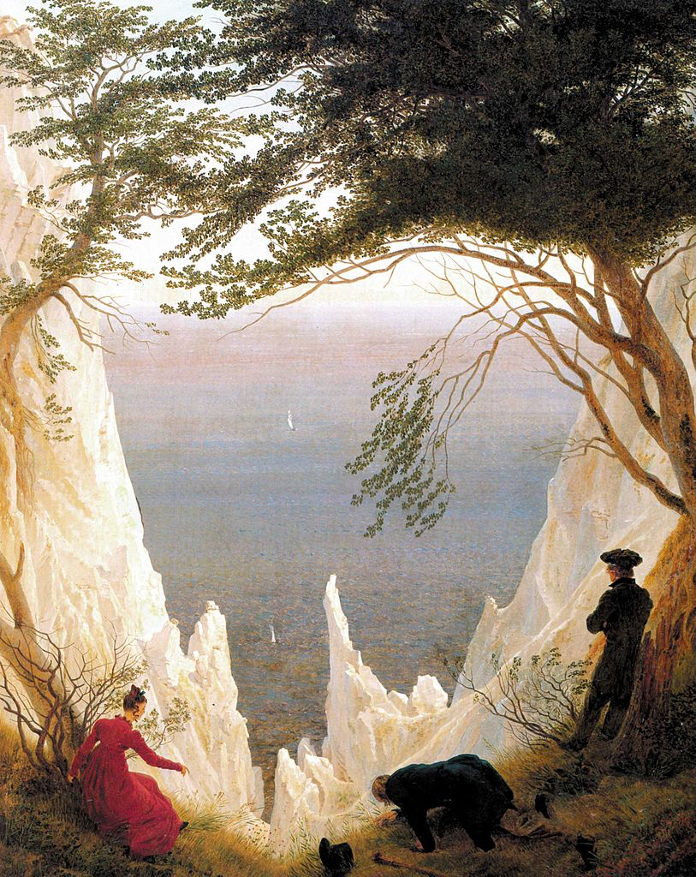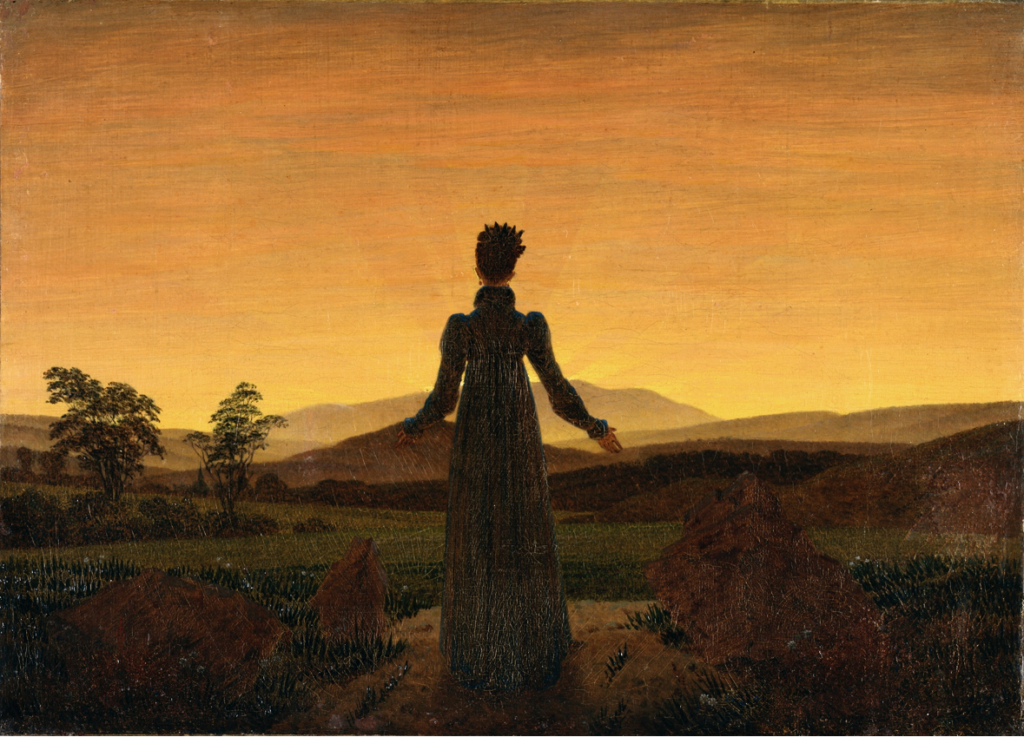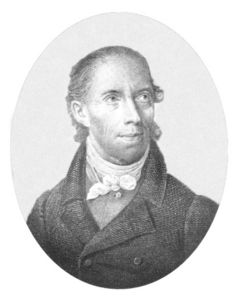At sunset
(Poet's title: Im Abendrot)
Set by Schubert:
D 799
[February 1825]
O wie schön ist deine Welt,
Vater, wenn sie golden strahlet,
Wenn dein Glanz hernieder fällt,
Und den Staub mit Schimmer malet;
Wenn das Rot, das in der Wolke blinkt,
In mein stilles Fenster sinkt.
Könnt ich klagen? könnt ich zagen?
Irre sein an dir und mir?
Nein, ich will im Busen tragen
Deinen Himmel schon allhier.
Und dies Herz, eh es zusammenbricht,
Trinkt noch Glut und schlürft noch Licht.
Oh, how beautiful your world is,
Father, when it shines with gold!
When your glow falls down towards us
And paints the dust with its shimmering;
When the red, as it gleams through the clouds,
Sinks into my quiet window!
Could I complain, could I be apprehensive?
Lose my faith in you or me?
No, in my breast I shall carry
All of your heaven here.
And this heart, before it collapses,
Will continue to drink the glow and savour the light.
All translations into English that appear on this website, unless otherwise stated, are by Malcolm Wren. You are free to use them on condition that you acknowledge Malcolm Wren as the translator and schubertsong.uk as the source. Unless otherwise stated, the comments and essays that appear after the texts and translations are by Malcolm Wren and are © Copyright.
☙
Themes and images in this text:
Chest / breast Clouds Drinking Dust Evening and the setting sun Gold Light Hearts Heaven, the sky Pictures and paintings Rays of light Red and purple Windows
The red glow of evening (‘Abendrot’) transforms our world. For a few moments things appear in a new light and the alchemical mystery of turning common, transitory reality into valuable, unblemished gold seems to unfold before our eyes. This is at its most impressive when the light of the sun is refracted, first of all through clouds (sunsets are never as vivid when the sky is clear) and then through glass. As the red and golden sunlight streams through our window (having already been transformed by clouds) the sensitive human soul might experience a moment of spiritual illumination. The Abbot Suger of St. Denis (1081 – 1151) was aware of the power of this phenomenon when he justified the expense of installing stained glass windows and golden doors in his abbey (the first to be built in what came to be called the Gothic style):
Whoever thou art, if thou seekest to extol the glory of these doors, Marvel not at the gold and the expense but at the craftsmanship of the work. Bright is the noble work; but being nobly bright, the work Should brighten the minds, so that they may travel, through the true lights, To the True Light, where Christ is the true door. In what manner it be inherent in this world the golden door defines: The dull mind rises to truth through that which is material And, in seeing this light, is resurrected from its former submersion. Suger, English translation by Erwin Panofsky, quoted in E. G. Holt ed., A Documentary History of Art Volume I 1957
Lappe, the poet of Im Abendrot was writing about similar ideas but from a different background. As a northern Protestant in the early 19th century he saw no need for ecclesiastical buildings to serve as special ‘holy places’. Nor was mystical union with the divine only attainable on special feast days or mediated by sacraments. Nature itself is a cathedral, our own living room window can let in the light of heaven, and any sunset can allow the sensitive soul to open up to the mystery underlying our existence.
Lappe’s contemporary Caspar David Friedrich lived in the same area (on the island of Rügen and in the nearby town of Stralsund) and many of his paintings capture a similar awe in the face of natural light. Both the writer and the painter were interested in conveying the power of ‘the sublime’. Both are equally aware that their own artistic medium cannot contain the whole reality of what is being portrayed externally or experienced within. More senses are needed. We do not just contemplate the glowing light at sunset, we actually drink it up and savour it.

(where Lappe wrote the poem)

☙
Original Spelling and note on the text Im Abendroth O wie schön ist deine Welt, Vater, wenn sie golden strahlet! Wenn dein Glanz herniederfällt, Und den Staub mit Schimmer malet; Wenn das Roth, das in der Wolke blinkt, In mein stilles Fenster sinkt! Könnt' ich klagen, könnt' ich zagen? Irre seyn an dir und mir? Nein, ich will im Busen tragen Deinen Himmel schon allhier . Und dies Herz, eh' es zusammenbricht, Trinkt noch Gluth und schlürft noch Licht. 1 Schubert appears to have changed Lappe's 'dahier' to 'allhier'. The meaning is not affected.
Confirmed Peter Rastl with Schubert’s source, Blätter von Karl Lappe. Erstes Heft. Lied und Leben. Stralsund1824. Gedruckt in der Königl. Regierungs-Buchdruckerei, page 24; with Karl Lappe’s sämmtliche poetische Werke. Ausgabe letzter Hand. Erster Theil. Rostock, Verlag von J. M. Oeberg. 1836, page 17; and with Zeitung für die elegante Welt. Herausgegeben von K. L. Methus. Müller. Achtzehnter Jahrgang. 1818. Leipzig, bei Leopold Voß. No. 203. Freitags, den 16. Oktober 1818, page 1642.
To see an early edition of the text, go to page 24 [50:24] here: https://digitale-bibliothek-mv.de/viewer/image/PPN750754354/50/


